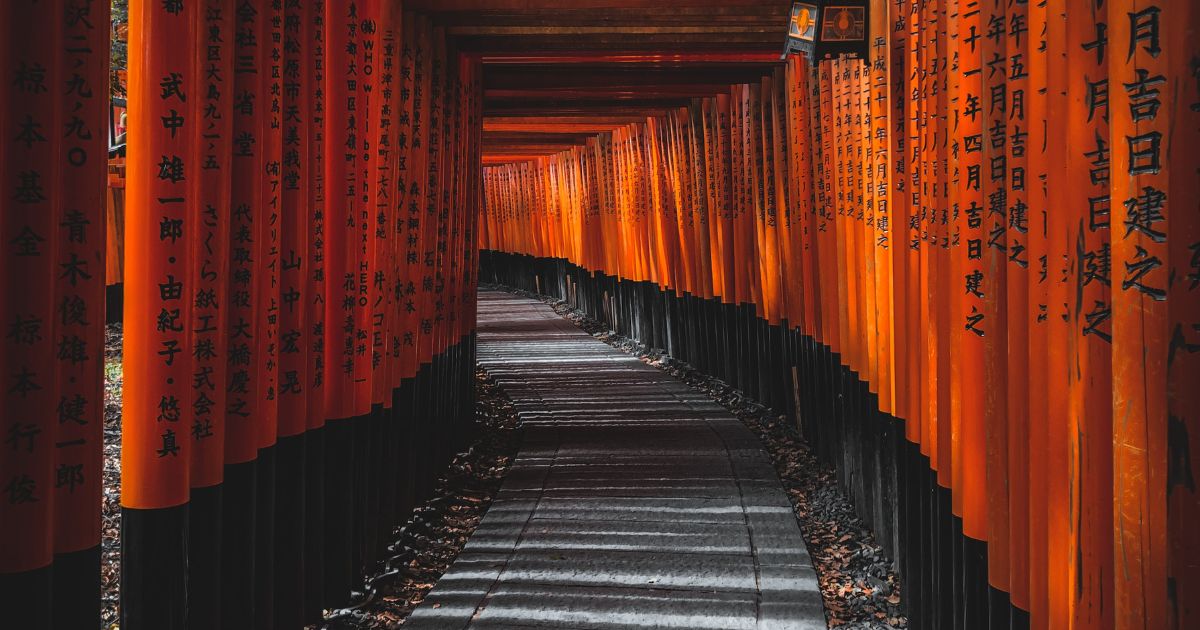Why Best Study In Japan From Pakistan
Studying in Japan from Pakistan: A Journey of Opportunities and Challenges
Japan, a captivating archipelago in East Asia, is a land of striking contrasts where ancient traditions seamlessly coexist with cutting-edge technology and modernity. Study in Japan is an exhilarating journey that seamlessly blends academic excellence, cultural immersion, and personal growth. Japanese universities consistently rank among the world’s best, offering a diverse range of academic programs, cutting-edge research opportunities, and well-qualified faculty. Studying abroad is a dream for many students worldwide, and Japan has emerged as an increasingly popular destination for Pakistani students seeking higher education opportunities.
Beyond academics, students have the chance to explore Japan’s rich cultural heritage, from ancient traditions like tea ceremonies and kabuki theatre to modern pop culture phenomena like anime and J-pop music. The experience of living in Japan provides a unique perspective on the world, fostering cross-cultural understanding and a global outlook. With a strong focus on safety, quality of life, and numerous scholarship opportunities for international students, Japan has become an increasingly attractive destination for those seeking an unforgettable and enriching educational adventure.

In this blog, we will explore the journey of Pakistani students who decide to education in Japan, highlighting the opportunities and challenges they encounter during their pursuit of education in this East Asian nation.
Opportunities of Study In Japan
Academic Excellence:
Japan is renowned for its world-class education system. Japanese universities consistently rank among the top in global rankings. Pakistani students have the chance to access high-quality education and benefit from state-of-the-art facilities, well-qualified faculty, and rigorous academic programs.
Scholarship Programs:
Japan offers various scholarship programs to international students, including those from Pakistan. The Japanese government, as well as many private institutions, provide scholarships that cover tuition fees, living expenses, and other associated costs. These scholarships make it financially feasible for Pakistani students to education in Japan.
Research Opportunities:
Japan is a hub of technological and scientific innovation. Pakistani students studying in Japan can engage in cutting-edge research and development projects, gaining valuable experience in fields like robotics, artificial intelligence, and engineering.
Cultural Exposure:
Japan’s rich cultural heritage provides an unparalleled opportunity for Pakistani students to immerse themselves in a completely different culture. Learning Japanese and participating in cultural activities can be an enriching experience, broadening their horizons and fostering cross-cultural understanding.
Global Networking:
Studying in Japan allows Pakistani students to build a global network of contacts. They can interact with students from diverse backgrounds, which can prove beneficial both academically and professionally in the future.
Challenges of Study In Japan
Language Barrier:
One of the most significant challenges for Pakistani students in Japan is the language barrier. While many Japanese universities offer English-taught programs, fluency in Japanese is often required for day-to-day communication and understanding of the culture. Learning Japanese can be time-consuming and challenging.
Cultural Adjustment:
Adapting to a new culture can be difficult. Pakistani students may face culture shock in Japan due to differences in customs, food, social norms, and lifestyle. Building relationships with Japanese peers and locals can also be challenging.
Cost of Living:
While scholarships cover tuition fees, the cost of living in Japan, especially in cities like Tokyo, can be high. Pakistani students need to manage their finances carefully and budget for housing, food, transportation, and other expenses.
Visa Regulations:
Obtaining a student visa for Japan can be a complex process, with various requirements and documentation needed. Navigating the visa application process can be a challenge for Pakistani students, and any errors or delays can disrupt their education plans.
Work Opportunities:
While there are part-time work opportunities for international students in Japan, strict regulations limit the number of working hours. This can make it challenging for Pakistani students to cover their living expenses through part-time jobs.

Overcoming Challenges
Language Proficiency:
Pakistani students can enrol in Japanese language courses to improve their language skills. Many universities offer Japanese language programs for international students. Building language proficiency not only aids in communication but also enhances cultural integration.
Cultural Sensitivity:
To overcome cultural challenges, it’s essential for Pakistani students to engage actively in cultural exchange activities, join clubs or societies, and build relationships with Japanese peers. This can help them better understand and adapt to the local culture.
Financial Planning:
Creating a detailed budget and exploring cost-saving options, such as shared accommodation, can help Pakistani students manage their finances effectively. Additionally, seeking part-time employment during free hours can provide some financial relief.
Visa Assistance:
Pakistani students can seek guidance from their chosen university or educational consultancy firms with expertise in the visa application process. Ensuring that all required documents are prepared accurately and well in advance can prevent unnecessary delays.
Networking and Internships:
Pakistani students should actively participate in networking events and seek internships or research opportunities related to their field of study. Building a professional network can open doors to job opportunities in Japan or elsewhere.
Students are drawn to studying in Japan for a variety of compelling reasons, reflecting the country’s unique blend of cultural, educational, and economic opportunities:
- Academic Excellence: Japanese universities consistently rank among the world’s top institutions. The country is renowned for its high-quality education, particularly in fields like engineering, technology, and science.
- Cutting-edge Technology: Japan is a global leader in technology and innovation. Students seeking to explore fields like robotics, artificial intelligence, and advanced manufacturing are attracted to Japan’s thriving tech scene.
- Cultural Richness: Japan boasts a rich and diverse cultural heritage. Students are enticed by the opportunity to immerse themselves in Japanese traditions, arts, and language, offering a unique cultural experience.
- Language Learning: Learning the Japanese language is a significant motivation for many students. Proficiency in Japanese opens doors to a wide range of career opportunities in Japan and enhances global employability.
- Scholarship Programs: Japan offers numerous scholarships to international students, making it financially feasible for many to study there. These scholarships often cover tuition fees, living expenses, and research grants.
- Global Perspective: Education in Japan provides students with a global perspective and an opportunity to connect with people from diverse backgrounds. This exposure fosters cross-cultural understanding and builds valuable international networks.
- Safety and Quality of Life: Japan is known for its safety and high quality of life. The country’s low crime rate and efficient public services make it an attractive destination for students and their families.
- Job Opportunities: Japan’s strong economy and diverse job market attract students who wish to gain work experience or secure employment in sectors like business, finance, or research.
- Unique Experiences: Japan offers unique experiences like witnessing cherry blossom festivals, staying in traditional ryokans, and exploring historic temples and shrines. These experiences contribute to a memorable and enriching educational journey.
- Global Impact: Japan has a global influence in various fields, including environmental conservation, disaster management, and international diplomacy. Students interested in addressing global challenges often see Japan as a platform for making a meaningful impact.
- Travel Opportunities: Japan’s strategic location in Asia allows for easy travel to neighbouring countries, making it an ideal base for exploring other Asian cultures and destinations.
- Hospitality and Politeness: Japanese society is known for its politeness and hospitality. International students often find the welcoming and respectful culture conducive to a positive living and learning experience.

In summary, students are attracted to Japan for its academic excellence, technological innovation, rich culture, scholarship opportunities, safety, and the chance to gain a global perspective. The diverse range of experiences and opportunities available in Japan makes it a compelling destination for students seeking both personal and professional growth.
Studying in Japan from Pakistan offers a plethora of opportunities for personal and academic growth. While it presents challenges, such as the language barrier and cultural differences, with determination and preparation, Pakistani students can overcome these obstacles. The rewards of obtaining a world-class education, experiencing a rich and diverse culture, and building a global network of contacts make the journey of studying in Japan a worthwhile endeavour. With careful planning and perseverance, Pakistani students can make the most of their educational experience in Japan, laying the foundation for a successful future.
-
© Copyright 2020 | www.pairstravel.com

